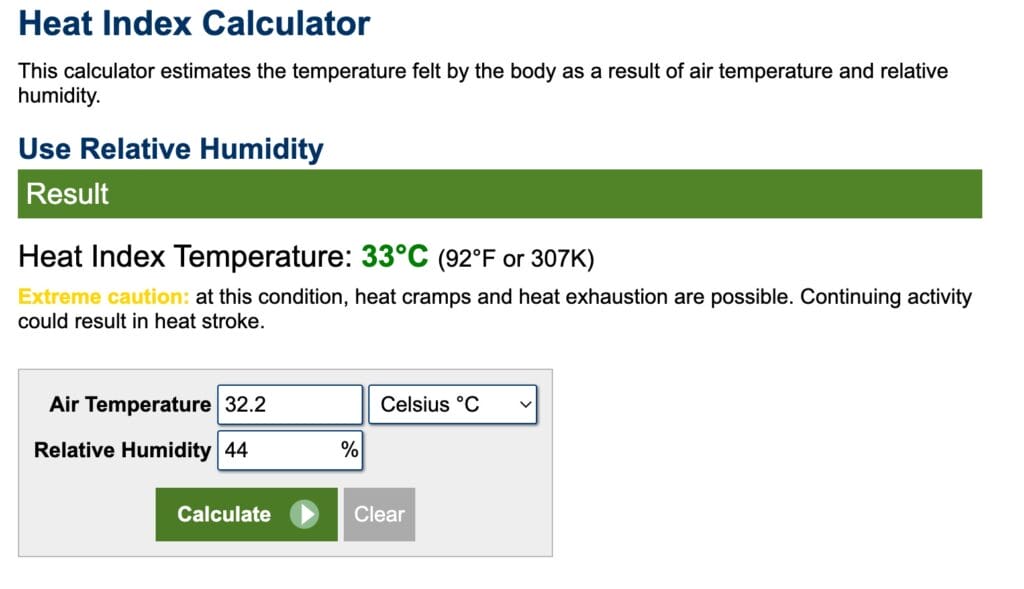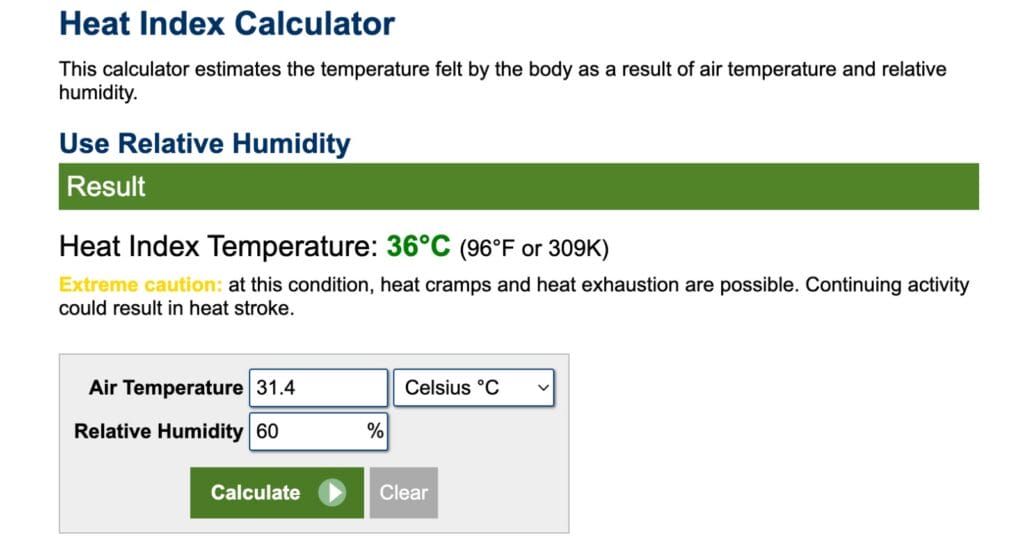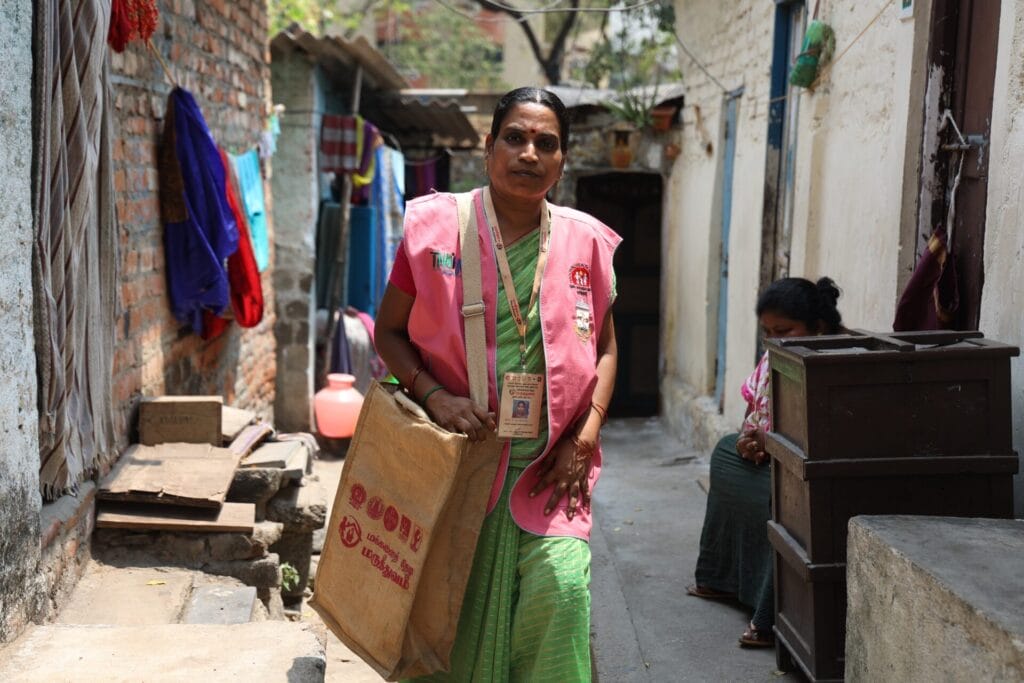On March 3rd, Primary Health Centres (PHC) in Chennai conducted the annual Pulse Polio Immunization campaign for children between the age group of 0-5 years. To ensure no child is missed, the Urban Health Nurses (UHN) made door-to-door visits on March 4 to administer polio drops.
While the initiative garnered praise from all quarters, the tireless efforts of health nurses who walked kilometres under the scorching sun, went unnoticed.
On March 4, at 2.30 pm, Meenambakkam and Nungambakkam weather stations in Chennai recorded the maximum temperature of 32.2 degrees C and 31.4 degrees C. However, as the humidity levels were at 44% and 60% at Meenambakkam and Nungambakkam stations, the real feel temperature in these stations was 33 degrees C and 36 degrees C respectively, as per our calculation.


Victims of heat stress
Almost 99% of Urban Health Nurses (UHNs) in Chennai and Tambaram Primary Health Centres (PHCs) are women. There are around 700 UHNs working at the 140 PHCs of Chennai, according to Dr M Jagadeesan, City Health Officer, Greater Chennai Corporation (GCC).
Their duties require them to be out in the field at least twice a week. Heat stress is a reality these nurses have to cope with every day, while they diligently go about their work in the community.
Read more: Delays plague maternity scheme: Expectant mothers in Chennai left in limbo
Carrying a four-kilo bag slung from her shoulder, Guru (name changed), a middle-aged health nurse at Tambaram, trudged one kilometre to a locality in Tambaram to administer polio drops to a three-year-old child. Before setting out, she applied ointment to her shoulders and neck, as prolonged sun exposure can trigger a skin allergy.
“I drink plenty of water, yet I feel thirsty all day,” Guru told Citizen Matters. Summer hasn’t fully arrived yet, but she’s been experiencing dizziness, and her haemoglobin levels have dropped over the past month. “That’s why I’ve started carrying fruits with me these days,” she added.

Guru has served as a health nurse for the past 32 years. Each summer seems to be more challenging than the last, yet she hasn’t received any assistance from nodal agencies—the Tambaram Corporation and the health department. “It’s the least we expect from the department that keeps us overworked every single day,” Guru lamented.
Her home visits extend beyond administering polio drops. As part of her duties, Guru visited the homes of 39 pregnant women in February, raising awareness about the Dr. Muthulakshmi Reddy Maternity Benefit Scheme and assisting them with online pregnancy registration. She is also responsible for administering vaccines to newborns every Wednesday, while filling in for two vacant positions at the hospital.
The combination of her workload and the oppressive heat exacerbates Guru’s fatigue to the extent that she struggles to fall asleep each night.
Women and heat stress
“Working on hot days also means decreased productivity,” said the six health nurses we interviewed.
These women have been experiencing heat burns, dehydration, body aches, skin allergies, and urinary tract infections as early as January. “It’s not even summer yet. But I’ve been feeling extremely hot since Pongal (mid-January),” shared Suma*, a 59-year-old nurse from Chennai.
“The fatigue, body pain and discomfort create a deadly combination, making it challenging to complete our work. There are days when I work until 2 am, entering data for pregnant women online,” she added.
In urban areas, each UHN is responsible for more than 30,000 people, far exceeding the ideal number of 5,000. In Tambaram alone, there were six vacancies for UHN positions as of five years ago, according to a senior health official. “The vacancies for UHNs in Chennai are being filled currently,” Jagadeesan told Citizen Matters.
While the city police department provides chilled water and buttermilk to officers on the field as an acknowledgment of their service, the health department has never considered such gestures. “I feel like a donkey carrying a big bag of chilled water, fruits, and the necessary medical kit when I’m on field work,” Suma remarked.
Like other health nurses, Suma isn’t compensated for her commute, forcing her to walk long distances in the heat or spend her own money. “We advise the public about precautions during heat waves. But, who takes care of us?,” she added.
Read more: Heat: The silent killer that threatens both body and mind
“I’ve been in this profession for 40 years. Forget about coming up with prevention strategies; no one in the city health department has ever asked us about the challenges we face in the heat,” shared another 59-year-old nurse from Chennai.
Are women more susceptible to heat?
Biologically, women are at a disadvantage when it comes to adapting to heat, reports suggested.
“Women sweat less than men and have lower cardiorespiratory fitness, higher metabolic rate, higher percent of body fat, lower body weight, lower body surface area, and higher surface area–to–mass ratio, which put their thermoregulation at a significant disadvantage,” as per the 2016 pilot study on Environmental Heat Stress Among Young Working Women.
The study added that the hormonal cycles (of those who do not use medicinal hormones) significantly affect temperature regulation.
What makes it intolerable for these female nurses is the poor working conditions. On the days of working at PHCs, they have access to shade and toilet facilities. However, as public toilets are either scarce or shut down in the city, nurses end up reducing water intake.
“I had a case of a health nurse developing Chronic Kidney Disease (CKD) of Unknown Etiology. While I am not certain that it is due to heat stress, she said that she had been drinking less water while on field,” said Dr Venkatesh, Nephrologist, Doctors Association for Social Equality.
Long term exposure to heat can lead to kidney failure. There is a need for a scientific study on health nurses developing kidney related ailments, added Dr Venkatesh.
Affirming Dr Venkatesh’s opinion is a news release by the World Health Organisation which states that heat can trigger exhaustion or heat stroke and exacerbate existing conditions such as cardiovascular, respiratory and kidney diseases, as well as mental health problems.
Besides stomach cramps and sodium loss, heat stress can result in exhaustion and hyperthermia-related injuries, comatose and even organ failure, Dr Venkatesh said.
Preventive strategies
Experts suggest measures that the civic bodies can adopt to provide a conducive work atmosphere for health workers working outdoors. “There should be a policy of established work break culture. Secondly, periodic health check-ups should be conducted for the nurses,” suggested Dr Venkatesh.
As a quick measure, coconut water and electrolyte rich fluids should be supplied at PHCs, so that the nurses can find some respite on the field, he added.
“The government can provide nurses with two-wheelers, so we don’t have to walk long distances in the sun. If the public health department fills the 3,000 vacancies of health nurses across the state, the workload would reduce. The move would ensure we don’t overwork in the peak summer,” said R Indhira, State President, Tamil Nadu Government All Health Nurses Association.
Globally, there are many examples of employers embracing short, medium and long term strategies to help employees cope with heat stress. Groups such as Occupational Safety and Health Administration (OSHA) in the US are launching a heat illness prevention campaign and taking action against employers who fail to comply with heat safety standards, as suggested by the World Economic Forum.
Short term strategies could include embracing overnight work during heat and as part of medium term strategies, employers can deploy technology-assisted heat stress monitoring. Providing shading infrastructure and urban ventilation pathways could be part of long term strategies, it added.
Only time will tell if the Greater Chennai Corporation would adopt these strategies to make the lives of its healthcare workers easier in the heat.
Call to action
What the GCC and the health department must do to ensure the well-being of urban health nurses:
- Ensure sufficient breaks.
- Offer electrolyte-rich fluids at primary health centers.
- Conduct regular health check-ups.
- Allocate funds for reimbursing urban health nurses’ commute.
- Address staff shortages to prevent nurses from being overworked and vulnerable to heat stress.
Also read:
- What I observed during a day spent at a UPHC in Chennai
- Can climate change influence tuberculosis cases in Chennai?